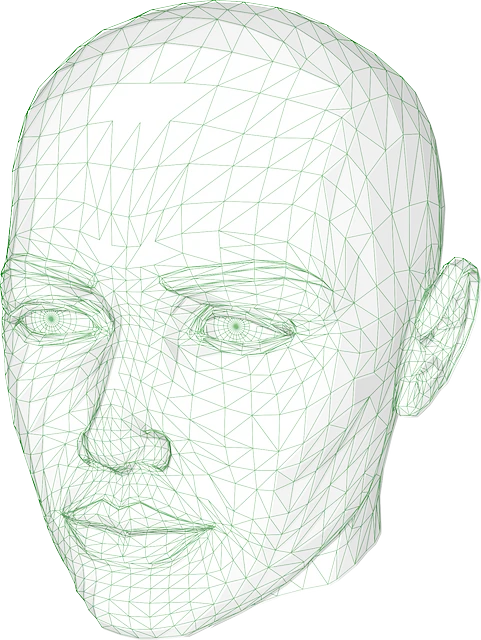The article discusses Post-Traumatic Stress Disorder (PTSD), explaining its symptoms like intrusive thoughts, flashbacks, nightmares, anxiety, avoidance behaviors, and mood alterations, and their impact on daily life. It then examines the therapeutic potential of kratom, a natural supplement derived from Mitragyna speciosa, for managing PTSD symptoms due to its anti-anxiety properties and influence on mood regulation through neurotransmitters like serotonin and norepinephrine. While kratom holds promise, its use must be carefully considered due to potential dependency and adverse effects, emphasizing the importance of medical supervision. The article suggests that an integrative treatment approach combining kratom with traditional therapies and medications may offer a personalized solution for PTSD management, but calls for more research to confirm its efficacy and safety. Additionally, it highlights the benefits of complementary therapies like mindfulness and yoga in addressing the emotional aspects of PTSD, fostering self-awareness and balance alongside conventional treatments. For those considering kratom as part of their treatment plan, professional medical guidance is essential to navigate its use safely and effectively.
Post-traumatic stress disorder (PTSD) profoundly affects individuals who have experienced or witnessed traumatic events. This article delves into the recovery process from PTSD, shedding light on its symptoms, impact, and the multifaceted approaches to healing. A significant focus is on Kratom’s potential role in managing the disorder due to its anti-anxiety properties. We explore how integrating Kratom with traditional therapies and holistic practices can offer a comprehensive recovery strategy for those affected by PTSD, emphasizing a balanced and informed treatment approach.
- Understanding Post-Traumatic Stress Disorder (PTSD): A Comprehensive Overview of Symptoms and Impact
- Exploring the Role of Kratom in Managing PTSD and Its Anti-Anxiety Properties
- Integrative Approaches to PTSD Recovery: Combining Traditional Therapies with Holistic Practices and Medications like Kratom
Understanding Post-Traumatic Stress Disorder (PTSD): A Comprehensive Overview of Symptoms and Impact

Post-Traumatic Stress Disorder (PTSD) is a complex psychological condition that can develop in individuals who have experienced or witnessed a traumatic event, such as combat, an accident, or a natural disaster. The symptoms of PTSD are diverse and multifaceted, often manifesting as intrusive thoughts, flashbacks, nightmares, and severe anxiety. These experiences can lead to avoidance behaviors, negative changes in thoughts and mood, and hyperarousal or heightened alertness. The impact of PTSD extends beyond the individual, influencing relationships, work performance, and overall quality of life.
In the quest for effective recovery strategies, natural supplements have garnered attention for their potential to assist individuals with PTSD. Kratom, a botanical derived from the leaves of the Mitragyna speciosa tree, has been explored for its anti-anxiety properties and its influence on mood regulation. Research suggests that certain strains of kratom may help alleviate symptoms associated with PTSD by promoting a sense of calm and reducing anxiety levels. It is important to note that while some studies are promising, the use of kratom should be approached with caution and under the guidance of a healthcare professional due to its potential for abuse and side effects. As part of a holistic treatment plan, which may include therapy, medication, and lifestyle changes, kratom could be a valuable tool in managing PTSD symptoms; however, further research is necessary to fully understand its efficacy and safety profile in this context.
Exploring the Role of Kratom in Managing PTSD and Its Anti-Anxiety Properties

Research into the efficacy of kratom for managing symptoms associated with post-traumatic stress disorder (PTSD) has been a subject of growing interest. Kratom, derived from the leaves of Mitragyna speciosa, has been traditionally used in Southeast Asia for its stimulant and sedative effects. Modern studies suggest that certain alkaloids found in kratom may interact with opioid receptors in the brain, potentially offering anti-anxiety properties. These effects could be beneficial for individuals suffering from PTSD, as they often experience heightened anxiety and hyperarousal. The anti-anxiety effects are thought to stem from kratom’s ability to modulate neurotransmitters such as serotonin and norepinephrine, which play a significant role in regulating mood and stress responses. However, it is crucial to approach the use of kratom with caution, as its interaction with other substances and its potential for dependency necessitate careful clinical oversight. Ongoing research aims to clarify kratom’s role in PTSD management, balancing its therapeutic potential against the need for rigorous scientific evaluation and regulation.
Integrative Approaches to PTSD Recovery: Combining Traditional Therapies with Holistic Practices and Medications like Kratom

Individuals grappling with post-traumatic stress disorder (PTSD) often find relief through a multifaceted approach to recovery that includes both traditional therapeutic methods and holistic practices. Integrative approaches to PTSD treatment have gained traction, as they offer a more personalized path to healing. Psychotherapy remains a cornerstone of PTSD treatment, providing sufferers with coping mechanisms and cognitive behavioral techniques to manage the symptoms of intrusion, avoidance, and hyperarousal. However, complementary therapies such as mindfulness-based stress reduction (MBSR) and yoga have also shown promise in mitigating the intense emotional responses characteristic of PTSD. These practices encourage a heightened sense of self-awareness and can promote a more balanced state of being.
In addition to therapeutic interventions, certain substances, like Kratom, which contains compounds that may have anti-anxiety properties, are being explored as part of a comprehensive recovery plan. Kratom, derived from the leaves of the Mitragyna speciosa tree, has been reported to influence mood and alleviate stress. While its use must be carefully monitored due to its potential for dependency and side effects, when administered responsibly under medical supervision, it can serve as an adjunct treatment to traditional therapies. The anti-anxiety effects of Kratom may help reduce the physiological symptoms of PTSD, such as restlessness and insomnia, allowing individuals to engage more effectively with therapeutic processes. It is important for those considering this approach to consult healthcare professionals, as individual responses to Kratom can vary, and its interaction with other medications must be carefully considered. Integrative approaches thus offer a tailored strategy that respects the unique needs of each PTSD sufferer, combining the evidence-based efficacy of traditional therapies with the potential benefits of holistic practices and targeted pharmacological interventions like Kratom.
In conclusion, post-traumatic stress disorder profoundly impacts individuals, often requiring a multifaceted approach for effective recovery. Understanding PTSD is the first critical step towards healing, as it enlightens affected individuals and caregivers about the nature of the condition, its symptoms, and the potential long-term effects. The exploration of Kratom’s role in managing PTSD, particularly its anti-anxiety properties, presents a promising avenue for complementary therapy. It is evident that integrative approaches, which combine traditional therapeutic practices with holistic methods such as Kratom use, can yield better outcomes by addressing the physical and psychological aspects of the disorder. As research continues to evolve in this area, it is clear that a tailored recovery strategy involving Kratom and other evidence-based interventions holds significant promise for those on the journey towards recovery from PTSD.






